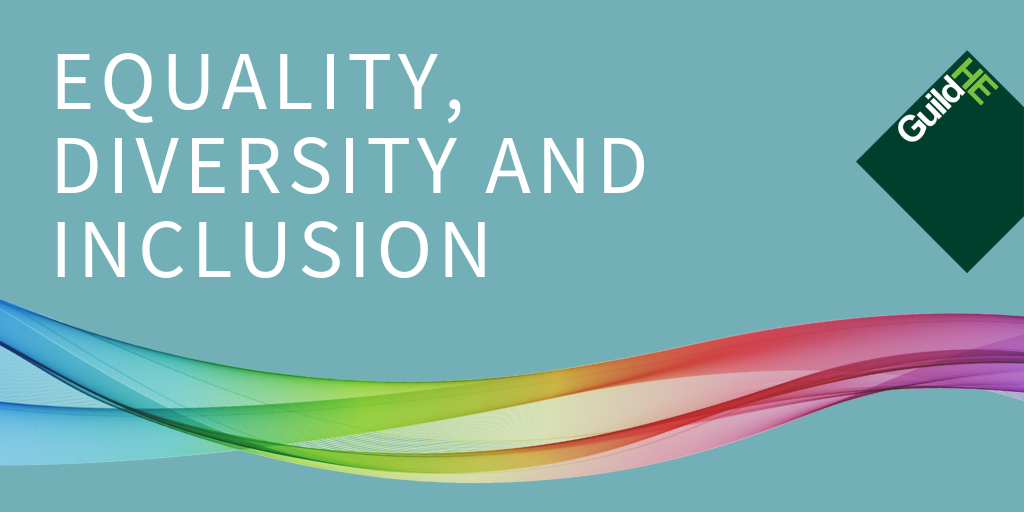I’ve recently spoken at several conferences on how the sector should respond to the OfS consultation on harassment and sexual misconduct, and ensure that we are creating safe, inclusive and supportive environments for our students.
In response, I believe that this isn’t just a question about tackling harassment and sexual misconduct – but it is actually more impactful if we think about what a whole institution approach is to making our students feel valued members of our community.
Whilst our principal focus of delivering the university experience has to be the teaching and learning environment we create – this is not in isolation from wider societal problems around inclusion and tolerance. According to a 2022 investigation by UN Women UK almost every young woman between the ages of 18-24 in the UK has experienced some form of sexual harassment. Of the 97% who declared having an experience, 96% didn’t bother reporting it because they thought nothing would change. Many in the HE sector would say that the vast majority of harassment and sexual misconduct experienced by students happens outside of classroom spaces – but we simply don’t know if that is the case. And in any case, if we want to create compassionate and inclusive environments we need to recognise that societal injustices are something we can and should do something about – that’s why the GuildHE EDI work has focused on the ideology of allyship – it is our collective responsibility to call out unwanted behaviours and our collective responsibility to educate ourselves on injustice and ensure that what we do in the world does not further embed societal inequalities.
For a whole institution approach this means that all staff and students should be given spaces to learn about others and barriers to equality, and for this to be built into the delivery of the HE experience. In terms of curriculum, yes we need to talk about decolonisation and gender equality in academic literature, but also in the way we design student support. We know that black students for example are less likely to ask for mental health support and in the NSS are less satisfied with student support than their peers.
And whilst we are not ‘big schools’ and shouldn’t treat our students as children, a 2021 HEPI poll of students found that only 26% of students think their prior education prepared them for the reality of sex and relationships in higher education and that whilst 59% of students are ‘very confident’ about ‘what constitutes sexual consent’ only 30% are ‘very confident’ about how to navigate sexual consent after alcohol has been consumed. As sex, relationships, nighttime socialising and alcohol still play a role in many student experiences – it is on balance something we should be talking to our younger students about.
We know many students are still reluctant to report cases to us – either because they don’t know how or don’t think anything will happen as a result. A whole institution approach provides a good framework for developing confidence for reporting and for both students and staff to call out unwanted behaviours where they do occur on campus.
We don’t think the way the current proposed OfS condition of registration is currently right – it is too specific and does not account for the different learning environments in HE. Instead, we proposed that the baseline regulatory condition should be more open and include 4 key principles:
- providers clearly explain how the institution discourages harassment and misconduct, and what behaviours it expects of its students and staff
- have appropriate mechanisms for students to report incidences and clearly signpost these to students,
- for the institution to investigate appropriately and,
- provide support for all parties involved in investigations
Where there is harassment happening on campus we have to act to stop it and where students experience harassment in public places we must support them through their trauma. Tackling sexual harassment is not a case of simply amending policies and running a bit of training, but is embedded into the wider conversation about community building, inclusivity, and campus safety.
Whilst we may think that it’s not our place to tackle such an ingrained societal problem, we are in the business of educating, expanding minds and trying to make sense of the world and make it better. Considering we are able to reach so many young people as they move into adulthood and learn independence we should make more use of the influence we have.
Regulation may feel uncomfortable and heavy-handed, and the issues are highly complex but I believe that if we all take responsibility for thinking about equality in all our work and if we all do a little – it amounts collectively to a lot.
Dr Kate Wicklow, Policy Director, GuildHE

